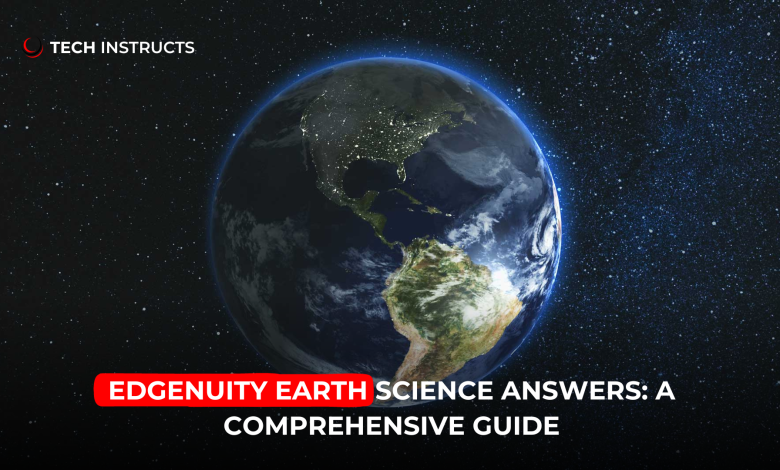
Are you ready to embark on a journey through the wonders of Earth Science? Whether you are a student looking to excel in your coursework or simply curious about our planet’s intricacies. Edgenuity Earth Science answers can be your guiding light.
Edgenuity Earth Science is a comprehensive online course that covers a wide range of topics, including the structure of the universe, the history of the Earth, Earth’s structure and plate tectonics, minerals and rocks, weathering, erosion, and deposition, Earth’s hydrosphere, Earth’s atmosphere, weather and climate, and Earth’s environment.
To truly appreciate Edgenuity Earth Science, it is crucial to understand its scope and sequence. Edgenuity Inc. provides detailed information on the course, including topics like latitude, longitude, and topographical maps.
Making the most of your learning experience requires an understanding of the curriculum’s structure.
Edgenuity Earth Science: Why is it Important?
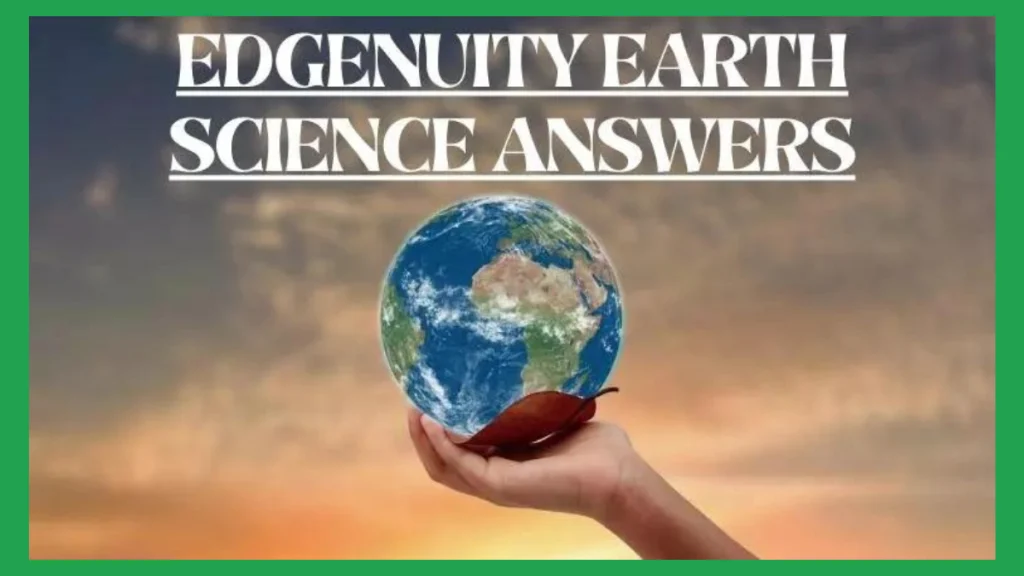
Edgenuity Earth Science is important for several reasons:
Foundation of Earth Understanding: It helps to understand how the Earth’s physical characteristics differ from those of other planets in our solar system by examining how they differ from one another.
Scientific Models: The course teaches students about scientific models and their importance in Earth Science, helping them grasp fundamental scientific concepts.
Exploration of Earth Sciences: Edgenuity Earth Science covers various Earth science disciplines, including geology, oceanography, meteorology, and astronomy. It encourages students to ask questions and explore the world around them, promoting scientific inquiry.
Understanding Earth’s Forces: The course delves into the forces that have shaped and changed our planet, offering insights into Earth’s structure, rock formation, and the dynamic processes that have molded our world.
See Post: Manga18fx: The Ultimate Destination for Manga Readers
How to Use Edgenuity for Earth Science?
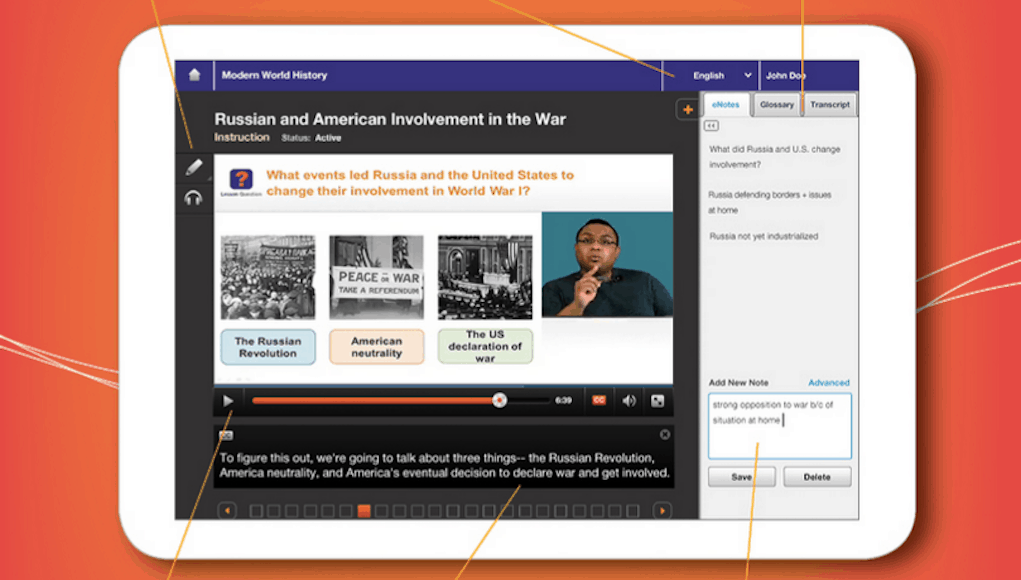
To use Edgenuity for Earth Science, you will first need to create an account and log in. Logging in will display all the courses that enroll you. Click on the Earth Science course to begin.
Parts of Earth Science Course
The Earth Science course has several parts, with each part divided into a unit and a lesson. Each lesson begins with a video introduction, followed by a series of interactive activities and assignments. It is up to you how quickly you complete the lessons, and you can return to any lesson at any time.
Your understanding of the material will evaluate you throughout the course by quizzes, tests, and projects. Your teacher will be able to see how you are progressing and provide feedback to you.
Edgenuity is use for Earth Science in the following ways:
- Start by reviewing the course syllabus: The syllabus explains what the course covers and what students are expected to learn.
- Set a schedule for yourself and stick to it: Edgenuity is a self-paced course, but it is important to set aside time each day or week to work on the material.
- Take advantage of the interactive activities and assignments: We have designed these activities and assignments to assist you in learning and understanding the material.
- Don’t be afraid to ask for help: You can ask your teacher or use Edgenuity help if you are struggling with a concept or assignment.
- Read the lesson objectives before you start each lesson: You will be able to focus on the most important concepts when you read the objectives before you start.
- Take notes as you work through the lessons: This will help you remember the material and prepare for quizzes and tests.
- Review your notes regularly: Making sure you understand the material will help you solidify your understanding.
- Complete all of the assignments and assessments: This will give you a chance to practice what you have learned and get feedback from your teacher.
Edgenuity is a powerful tool that can help you learn Earth Science. By following these tips, you can succeed in the course and gain a deeper understanding of our planet.
Tips for Learning on Edgenuity
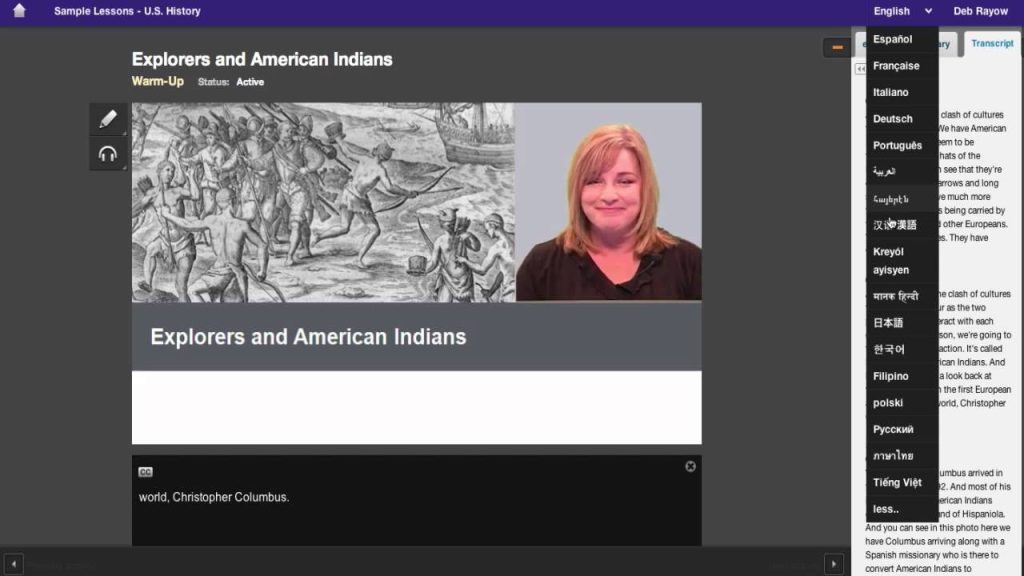
Edgenuity is an online learning platform, and here are some tips to make the most of your learning experience:
Access Official Resources: Utilize the official resources provided by Edgenuity, such as student guides and troubleshooting tips available on their website. You can make navigating the platform effectively easier with the help of these resources.
Check for Progress Tools: Edgenuity offers tools to track your progress, grades, and assignments. Regularly use these tools to stay organized and ensure you’re keeping up with your coursework.
Seek Community Advice: Visit forums like the Edgenuity subreddit where students share tips and tricks based on their experiences. You might find valuable insights from peers who have used the platform.
Understand the Platform: Familiarize yourself with Edgenuity’s functionalities by referring to guides and quick preview resources. Understanding how to use the platform efficiently can save you time and frustration.
Engage with Teachers: Remember that Edgenuity does not replace the role of your teacher. Make sure you stay in contact with your instructors, ask questions, and seek clarification whenever necessary. Building this communication enhances learning.
Stay Consistent: Consistency is key to online learning. Make a study schedule that you can stick to. Setting aside dedicated time for your Edgenuity coursework can help you stay on track.
Utilize Additional Resources: Depending on your course, you may need supplementary materials. Don’t hesitate to use textbooks, online research, or other educational resources to supplement your Edgenuity lessons.
Incorporating these tips into your Edgenuity learning journey can help you navigate the platform more effectively and achieve your academic goals.
Earth Science is Taught at What Grade Level?
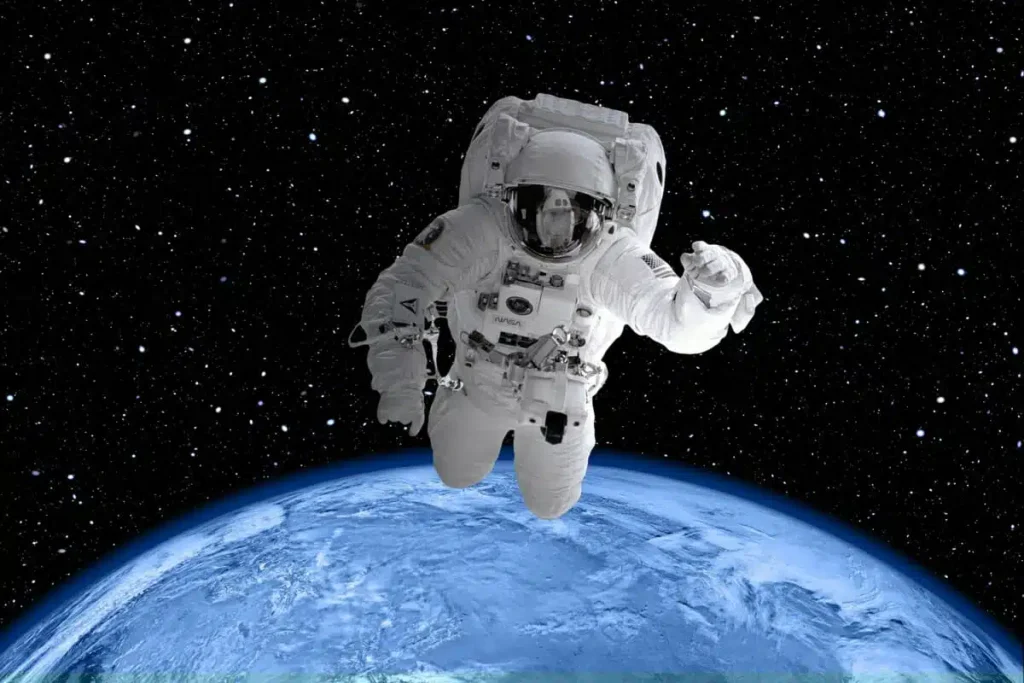
It is common in the United States for eighth or ninth grade students to study earth science. However, some schools may offer it in seventh grade, while others may wait until tenth or eleventh grade. Some schools may also offer earth science as an elective course for students in any grade level.
There are many topics that fall under the scope of earth science, including:
- Composition and structure of the Earth
- Landforms, oceans, and the atmosphere of the Earth
- The Earth’s climate and weather patterns
- The Earth’s natural resources
- The Earth’s geological and biological history
Earth science, an important subject for the study of Earth, explains our planet’s natural processes and the processes that shape it. It also helps us to make informed decisions about how to use the Earth’s resources sustainably and protect the environment.
What are the Main Branches of Earth Science?
The main branches of Earth science are:
- Geology: The study of geology is concerned with the composition, structure, processes, and history of the solid Earth.
- Meteorology: Discovering the composition, structure, processes, and patterns of weather in the atmosphere.
- Oceanography: Oceanography is the study of the oceans and the properties, compositions, structures, processes, and wildlife of those oceans.
- Astronomy: Astronomy is the study of all the objects in the universe that belong to another planet, star, galaxy, or the universe beyond the Earth.
- Environmental science: The study of human interaction with the natural environment, which includes the effects of human activities on the physical and biological systems of the planet.
These five branches of Earth science are interrelated and overlap in many ways. For example, geologists study the atmosphere and oceans to understand how they interact with the solid Earth, and meteorologists study climate change, which is caused by human activities and has a significant impact on all of Earth’s systems.
Final Words
This online course provides a comprehensive overview of the world of Earth Science through a range of engaging topics. It is possible for you to seek assistance from a number of resources if you are having difficulty understanding any part of the material. You can use the Edgenuity search bar, check the Edgenuity help center, use an online search engine, or ask your teacher for help.
Also Recommended: Wordhippo 5 Letter Words
FAQs about Edgenuity Earth Science Answers
Following are some FAQs about Edgenuity Earth Science Answers:
What are the main topics of earth science?
A study of the Earth is an investigation into its atmosphere and processes as well as the composition of its surface. Geology, meteorology, oceanography, and astronomy all fall under this broad field of study.
What is Earth science called?
Earth science is also called geoscience or geochemistry.
What is the study of Earth called?
The study of the Earth is also called geology, but geology is a more specific term that focuses on the solid Earth and its processes.
What is physical Earth?
Physical Earth is a term that is often used to refer to the non-living aspects of the Earth system, such as its rocks, minerals, atmosphere, and oceans. Science related to the physical Earth focuses on the composition, structure, and processes that occur on it. We also conduct a study that examines the interaction between different parts of the physical Earth system.




